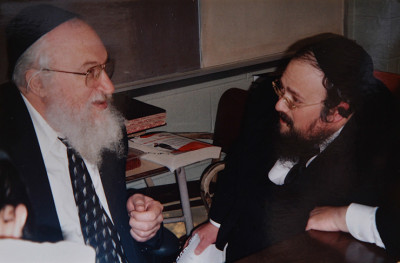
The Working Person’s Closeness to Hashem
The Torah sets out a scenario where an item is stolen from the possession of someone responsible for watching over it. The owner and the item’s guardian, the ba’al habayit, come to the beit din and the latter swears under oath that he was not the one who stole the aforementioned item. The posuk in parshat Mishpatim states, “venikrav ba’al habayit el ha’elokim.” In this context, “Ha’elokim” means the beit din, but R’ Nosson Adler, the rebbi of the Chasam Sofer, explains that it can be understood to mean that if he can honestly say that he did not steal the item and prove his integrity, the ba’al habayit can be nikrav el ha’elokim, close to Hashem.
This is also highlighted by the fact that the posuk uses the word venikrav. Wouldn’t it make more sense to say veyavo – that the ba’al habayit should come? The posuk uses this word to emphasize the fact that honesty is a prerequisite for kirvat Elokim.
Rav Menachem Mendel Torem of Rimanov also known as Mendele Rimanover was niftar on May 29, 1815. The famous Polish Chasidic Rebbe worked alongside the likes of Rav Yaakov Yitzchak of Lublin, Rav Yisrael Hopstein, Rav Avraham Yehoshua Heshel of Apta, and Rav Kalonymus Kalman Epstein. He beautifully explained this posuk as expressing that a person who studies Torah all day becomes close to Hashem.
How does someone who works become close to Hashem? The answer is by dealing business in the manner set forth by the Torah in this week’s parashah, with integrity and honesty. That is the overall explanation of why the Torah stresses that the ba’al habayit become close to Hashem. Because, his way of becoming close to Hashem is by physically following the laws of the Torah.
Based on the shiurim of Rav Aharon Walkin ztk”l delivered at the Chazaq Beit Midrash Bais Nosson Meir / Kollel Zichron Moshe V’Leah.
The Legacy of the Rosh HaYeshiva, HaGaon HaRav Aharon Walkin ztk”l
Typography
- Smaller Small Medium Big Bigger
- Default Helvetica Segoe Georgia Times
- Reading Mode




